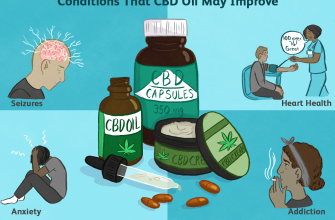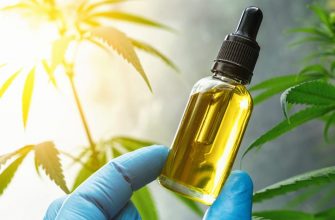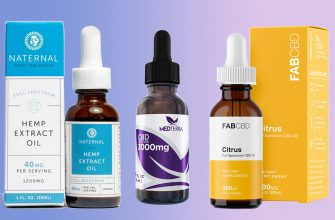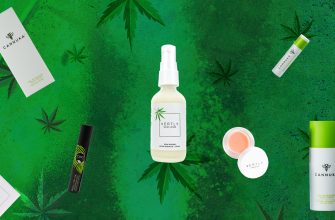Polycystic ovary syndrome (PCOS, Stein-Leventhal syndrome) is a polyendocrine syndrome, in other words, a hormonal disorder that affects every fifteenth woman in the world. This syndrome is accompanied by dysfunction of the ovaries, irregular ovulation or its absence, and a number of hormonal disorders. In addition, PCOS is a common cause of infertility.
In modern Ukraine, there is no single approved protocol for the treatment of this disease. Most often, treatment comes down to taking hormonal drugs and recommendations “try to sew up your mouth and have a baby.” Such “methods” of treatment more often lead to a psychologist than to recovery. And official medicine signs for its impotence. The medical reform of Ukraine, under the banner of Suprun, is more of an administrative nature, and treatment protocols are by no means a strong point.
World practice shows that there is a solution and it is not radical, with almost zero damage to the body.
Dr. Iris Crawford (Iris Crawford) is a naturopathic doctor from Seattle. She specializes in hormonal problems, and also in cannabis. It provides answers to questions about the origin of hormonal disorders and PCOS, misconceptions associated with the disease, and the use of cannabis in the treatment of the most problematic side effects of PCOS.
– Your specialty is hormonal changes. How many PCOS patients are in your practice?
Dr. A.K.: I created several podcasts about PCOS, and it caused a flurry of calls. I got calls from all over the country asking me to help them because there aren’t many treatment options for women with PCOS. They get all the basic information about the disease from their therapists.
Can you name the single most important thing about PCOS that people don’t understand well?
Dr A.K.: Most PCOS patients are sure that the problem will never be solved and they will never be free from this condition. If you have, say, insulin-dependent diabetes that remains incurable, you will also have abnormal testosterone production, and a whole host of diabetes-related disorders. Even very thin people can be insulin insensitive.
– Some doctors treat being overweight as a symptom of PCOS, while others treat being overweight as the root cause. Who rights? Or it individually for everyone human?
Dr A.K.: Both. This is the classic chicken and egg problem. PCOS can occur in patients who are already overweight, but insulin insensitivity also contributes to weight gain. Often the cause of insulin resistance is not weight, but stress, especially in the case of women. Stress causes an increase in cortisol, which in turn contributes to insulin resistance.
Share your personal reasons that led you to consider using cannabis as a holistic healing option.
Dr A.K.: When I was growing up, I got used to my mom smoking marijuana as a form of entertainment. There was nothing uncomfortable or frightening about it, it always seemed harmless to me. As a naturopathic physician, I could certainly see the benefits of “herbal” medicine in general. I trained in the use of cannabinoids and studied how our endocannabinoid system (the system of endogenous neurotransmitters that bind to cannabinoid receptors) has evolved. I gained knowledge about the different ways marijuana can be used for healing (especially chronic pain management).
– And in the treatment of problems of the female reproductive system, for example, chronic inflammation, can cannabinoids help? For example, to help manage chronic pain from PCOS, or after an ovarian rupture?
Dr A.K.: Any type of pain can be successfully treated with cannabis, especially cramp pain. It affects how our brain experiences pain. Cannabis also has many benefits and very few side effects compared to other painkillers, such as Vicodin (an opiate group), which is highly addictive. Cannabis is virtually free of side effects.
In addition, pain makes us irritable and gloomy, and many people get depressed in addition to their chronic pain. Cannabis can relieve both pain and depression.
– Not to mention how our mood changes with hormonal disorders and PMS.
Dr A.K.: I recently turned my attention to social programs and their key messages about women and depression. Women are two to four times more likely to commit suicide.
Anxiety, depression and insomnia are problems associated with hormonal imbalances. Hormonal imbalances are twice as common in women, and they are not menopausal women – I have also treated sixteen-year-old girls who had panic attacks caused by hormonal imbalances. This hormonal imbalance can be caused by stress, as part of a syndrome called “adrenal fatigue” (adrenal dysfunction). It looks like an epidemic among women, and I will dedicate the rest of my career to this issue.
– So, the use of cannabis for stress control seems to be extremely beneficial.
Dr A.K.: Let’s get back to the connection between cortisol and blood sugar. Every woman struggling with PCOS should be tested for “adrenaline fatigue” (adrenal dysfunction), as well as hormonal imbalances in general. These are all parts of the same picture. Facial hair and acne can also be common in PCOS patients.
Most of the work I do with women results in weight loss. I have an approach that allows you to reduce excess weight quite quickly, and then keep it off without any diets. It works as a kind of “start metabolism”. This is very important for patients who are tired of diets.
– Dietary advice is all the rage right now.
Dr A.K.: Still would. I work with women who can’t lose weight even on the keto diet, so they’re very confused. It’s like a detective’s job: I need to find the fundamental reason why their body doesn’t want to lose fat. As a rule, this is a hormonal imbalance and / or metabolic disorder as a result of a long series of diets, as well as under the influence of a negative environment.
– Often Western medicine can be reduced to numbers – on graphs or on scales. The vast majority of my doctors are focused on the numbers, which more often than not add shame and inferiority to the overall picture of the disease. “home cause your disease – your completeness“.
Dr A.K.: Yes it is. Often the focus is on BMI (body mass index), which has nothing to do with your overall health. The Hulk, for example, has a BMI that would be considered obese today. Body fat percentage is more indicative.





